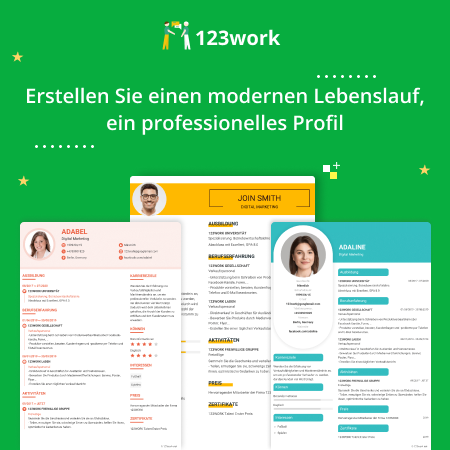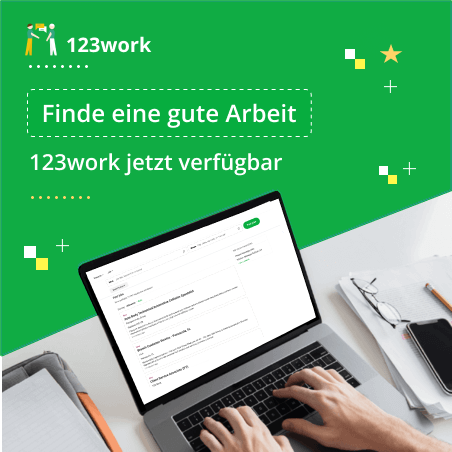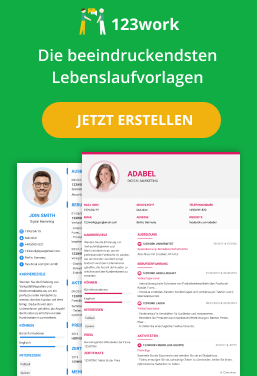OVERVIEW
Parent Sector : Education Sector (ED)
Duty Station: Hamburg
Classification of duty station: [[filter12]]
Standard Duration of Assignement : [[filter13]]
Job Family: Education
Type of contract : Non Staff
Duration of contract : From 7 to 11 months
Recruitment open to : External candidates
Application Deadline (Midnight Paris Time) : 15-FEB-2024
UNESCO Core Values: Commitment to the Organization, Integrity, Respect for Diversity, Professionalism
OVERVIEW OF THE FUNCTIONS OF THE POST
Nature of the Consultancy
The Research Consultant, hereby the Consultant, will contribute to the conceptualisation, research design and instruments, and produce a synthesis report for global research on Teachers as Lifelong Learners. Key technical outputs of the consultancy will include (1) a comprehensive literature review on the research topic; (2) research design including data collection instruments; (3) expert consultation on the preliminary research findings; 4) a global synthesis report that includes the findings of case studies and thematic papers.
The consultancy will be managed and supervised by the UNESCO Institute for Lifelong Learning (UIL) in close consultation with the UNESCO HQ's Education Section’s Division for Policies and Lifelong Learning Systems, namely, the Section of Teacher Development (the Secretariat of the International Task Force on Teachers). The consultant will follow the guidance and feedback of the UIL and the project's Global Expert Group to ensure quality research outputs.
1. Background and Rationale
The 2030 Agenda for Sustainable Development serves as a comprehensive guide for United Nations member states to advance in five crucial dimensions: people, prosperity, planet, partnership, and peace. Among its goals, quality education (SDG 4) is highlighted, urging nations to \"ensure inclusive and equitable quality education and promote lifelong learning opportunities for all.\" Lifelong learning, a central tenet in the formulation of sustainable education policies, seamlessly integrates the concepts of learning and living, spanning all ages, education levels, and life contexts.
This inclusive approach encompasses various learning modalities to meet diverse needs, emphasizing articulation, flexibility, and visibility. The goal is to facilitate accessible and adaptable learning pathways for individuals with different needs and preferences. Recognizing the complexity of lifelong learning as an evolving ecosystem, it becomes the overarching principle shaping the entire education system. The effectiveness and relevance of this ecosystem hinge significantly on educators at all levels, who, in embracing lifelong learning, impart the ultimate skill: the ability to learn, unlearn, and relearn.
In our ever-evolving global landscape, the importance of education, especially the art of quality teaching, resonates more profoundly than ever. A skilled, experienced and committed teaching workforce plays a key role in delivering not just education, but a transformative learning experience that maximises learners' potential and enhances their wellbeing. However, this noble duty is marked by increasing complexity and uncertainty, demanding teachers to shoulder multifaceted and dynamic responsibilities. Teachers, in their role as guides and mentors, extend beyond the traditional boundaries of imparting subject knowledge. They are entrusted with the task of nurturing attitudes and skills that align with the ever-changing demands of society. To achieve this, it becomes paramount to create an environment where teachers are not only encouraged but supported in their journey of continual self-improvement. This involves ensuring that they continuously enhance their skills and expand their knowledge base to adeptly navigate and respond to the evolving expectations placed upon them.
In response to these challenges, the UNESCO Institute for Lifelong Learning (UIL) and Shanghai Normal University (SHNU) have initiated a joint research project titled ‘Teachers as Lifelong Learners: International Research, Policy, and Practice on Lifelong Learning for Teacher Education (2023-2026).
Long Description
The aim of the project is to contribute to transforming teacher training and education systems and policies into lifelong learning ecosystems and integrated learning policies. It seeks to achieve this by generating evidence, tools and experience on the role, profile and learning strategies of teachers, with implications for teacher education and training institutions. The project outlines specific objectives:
a. Generate new knowledge including i) a state-of-the-art on the current status of Teachers as Lifelong Learners, considering legal and normative frameworks, education policies, teacher education and training curricula, and emerging teacher training practices), ii) a review of innovative teacher training models and approaches promoting Teachers as Lifelong Learners, iii) identification of the competencies that teachers will need to become Lifelong Learners, and to support students as Lifelong Learners;
b. Develop tools for teacher education and training institutions, including guidelines, model training modules and monitoring frameworks related to continuous professional development and teaching practice;
c. Pilot and validate the guidelines, sample training modules and monitoring frameworks in collaboration with partner institutions in four countries (including China).
To ensure the success of this global research, UIL is seeking an individual consultant with relevant experience and qualifications. The consultant is expected to play a pivotal role in steering the project towards its objectives, bringing a nuanced and strategic perspective to the different dimensions of the study.
2. Work Assignment:
The Consultant will work under the guidance of the UIL Director and be managed by the Team Leader of the Quality Learning Ecosystems Programme at UIL. Her/his main responsibility will be to support the implementation of a research project at both global and national levels and produce a global synthesis report based on the literature review, national case study research conducted by research teams in four countries, and a set of thematic papers.
Long Description
Main tasks and responsibilities:
Develop a comprehensive literature review report:
• Develop a methodology for conducting the literature review;
• Collect and review a comprehensive list of literature on the research topic (at least in two major languages e.g., English, French, Spanish, Chinese, and Arabic);
• Identify and present key concepts and trends in the literature;
• Organize findings from the literature review into thematic sections or categories based on common themes or topics;
• Within each section, summarize and synthesize the key findings/methodologies/and main arguments presented in the literature, and highlight any gaps or contradictions;
• Propose areas, questions, and objectives for the research;
• Identify at least five topics for thematic papers which be developed through this project;
• Draft a comprehensive literature review report;
• Present key findings from the report on the International Expert Workshop in June 2024.
Develop research methodology, including data collection tools:
• Develop a research conceptual framework: outlining the objectives, focus, areas, and possible research initiatives undertaken by the project;
• Determine the overall research design (e.g., experimental, observational, qualitative, quantitative);
• Develop related data collection tools (e.g., questionnaires, surveys, interviews, experiments, observations, or other data collection tools);
• Develop data analysis techniques and respective instruments to analyse the collected data;
• Develop a report template for specific research carried out by the national research team;
• Improve methodologies and tools based on feedback from the national research team.
Provide technical support to country research teams:
• Provide technical support in designing and implementing sub-research at the country level;
• Review research reports submitted by the national research teams.
Develop the first draft of the global synthesis report:
• Develop an outline of the global report;
• Review and provide feedback on the reports submitted by country research teams;
• Analyse results from county-level research report;
• Draft the synthesis report;
• Present the preliminary findings from the synthesis report at the International Expert Workshop.
Contribute to the International Expert Workshop (June 2024):
• Support to prepare the workshop programme;
• Facilitate selected sessions of the workshop;
• Prepare a workshop report.
Finalize the global synthesis report:
• Improve and finalize the global synthesis report based on feedback received during the International Expert Workshop.
In line with UNESCO’s overall gender mainstreaming strategy, the Consultant is expected to integrate a gender perspective in all activities and apply gender mainstreaming concepts whenever feasible.
Long Description
3. Work Schedule and Expected Deliverables
The Consultant shall submit to UIL the following deliverables:
No
Deliverables Timeline 1 A comprehensive literature review report End of March 2024 2 Develop research design and data collection tools End of April 2024 3 Develop the first draft of the global synthesis research End of May 2024 4 Present the preliminary findings of the synthesis report at the International Expert Workshop and gather feedback Between 15 June – 15 July 2024 5 Finalize the global synthesis report End of August 2024
All deliverables shall be submitted to UIL in English. The feedback from the consultations with different stakeholders in this project will be managed and consolidated via UIL for the Consultant to incorporate them into the final global synthesis report.
4. Duration of contract:
The Consultant will be required to work during the period 11 March 2024 and 30 November 2024.
5. Location and travel:
The consultancy assignment will primarily be home-based in any location, working remotely. The Consultant should be available to meet with the UIL team (online) during office hours of Hamburg, Germany. Subject to the agreements between the partners of this research project, the Consultant may be required to travel to Hamburg, Germany, and/or Shanghai, China. UIL will support the travel arrangements of the Consultant.
6. Supervision and reporting
The Consultant will be directly supervised by, and report to the Team Leader of the Quality Learning Ecosystems Programme at the UNESCO for Lifelong Learning, Hamburg, Germany. In addition to submission of contract deliverables, the Consultant will routinely communicate with UIL staff, national researchers in charge of the country-level research, as well as selected members of the project’s Global Expert Group through emails and virtual meetings. Upon commencing the consultancy, the Consultant will participate in an initial online meeting with UIL to reconfirm the scope of the consultancy and to update, as needed, the consultancy approach to work and timeline, and to define required sub-tasks and interim outputs to be carried out.
UIL will assist the Consultant in receiving:
• Key project documents, such as work plan, and collection of literature;
• Timely guidance and feedback on relevant tasks as required;
• Coordination, liaison and communication support with the national researchers and relevant partners in the project countries, as required.
COMPETENCIES (Core / Managerial) Accountability (C)Communication (C)Innovation (C)Knowledge sharing and continuous improvement (C)Planning and organizing (C)Results focus (C)Teamwork (C)Professionalism (C)
- For detailed information, please consult the UNESCO Competency Framework.
REQUIRED QUALIFICATIONS
Education
Doctorate degree and empirical research experience in the fields of teacher education, adult education, and lifelong learning.
Expertise in the field of teacher education
• Expertise in specific areas within teacher education, such as curriculum design, pedagogy, assessment, and professional development, are also required.
• Knowledge and expertise in the field of lifelong learning is highly desirable.
• A proven record of publications in the leading international journals on this subject matter is a requirement.
Work experience and expertise
• At least 10 years of experience in designing, conducting and leading research projects in different country contexts on this subject matter.
• At least 10 years of teaching experience in Teaching Training Institutes or other higher education institutes with a focus on teacher education and professional development.
• Published at least 2-3 publications in leading international research and policy journals in the field of teacher education.
• Have a well-established professional and academic network within the field of teacher education.
Skills and Competencies
• Ability to understand the broader social, cultural, and political contexts that impact teacher education both at the global and national level.
• Ability to design both quantitative and qualitative research methodologies and tools.
• Strong analytical and critical thinking skills to evaluate existing teacher education programs, identify areas for improvement, and propose evidence-based recommendations.
• Excellent communication and team skills to work with other researchers from diverse cultural and linguistic backgrounds.
• Strong project management skills to oversee various aspects of the research project, including planning, organizing, and coordinating activities, managing timelines and resources, and ensuring deliverables are met.
• Excellent verbal and written communication skills.
• Ability to work under pressure, manage heavy workloads and meet tight deadlines.
Language competencies
Advanced language proficiency in English. Intermediate language proficiency levels in French and/or Spanish are desirable.
APPLICATION PROCESS
Submission of Application
Interested candidates should click on “Apply Now” and download and complete the Employment History form (Word document) in ‘Employment History Form / My Documents’. Before uploading the document, at the end of the Word document, please insert the extra pages with the following required information:
• An updated Curriculum Vitae (CV) and a cover letter indicating how your qualifications and experience make you suitable for the assignment.
• Short Approach to work (maximum 3, A4 pages) identifying the specific components of these TORs and how the intended objectives/outputs/delivery shall be addressed, and including specific references to relevant examples of successfully undertaking equivalent or comparable assignments.
• Consultancy fee, quoted in US dollars as a lump sum with a breakdown according to the level of effort/ time-on-task or per output.
UNESCO places great emphasis on ensuring that the objectives of the work assignment, as described in the Terms of Reference, are met. Accordingly, in evaluating the proposals for the assignment, attention will focus first and foremost on the technical elements. From those proposals deemed suitable in terms of the criteria in the Terms of Reference, UNESCO shall select the proposal that offers the Organization the best value for money.
Queries of a technical nature about these TORS may be directed to: uil-learningecosystems@unesco.org
SELECTION AND RECRUITMENT PROCESS
Please note that all candidates must complete an on-line application and provide complete and accurate information. To apply, please visit the UNESCO careers website. No modifications can be made to the application submitted.
The evaluation of candidates is based on the criteria in the vacancy notice, and may include tests and/or assessments, as well as a competency-based interview.
UNESCO uses communication technologies such as video or teleconference, e-mail correspondence, etc. for the assessment and evaluation of candidates.
Please note that only selected candidates will be further contacted and candidates in the final selection step will be subject to reference checks based on the information provided.
Footer
UNESCO recalls that paramount consideration in the appointment of staff members shall be the necessity of securing the highest standards of efficiency, technical competence and integrity. UNESCO applies a zero-tolerance policy against all forms of harassment. UNESCO is committed to achieving and sustaining equitable and diverse geographical distribution, as well as gender parity among its staff members in all categories and at all grades. Furthermore, UNESCO is committed to achieving workforce diversity in terms of gender, nationality and culture. Candidates from non- and under-represented Member States (last update here) are particularly welcome and strongly encouraged to apply. Individuals from minority groups and indigenous groups and persons with disabilities are equally encouraged to apply. All applications will be treated with the highest level of confidentiality. Worldwide mobility is required for staff members appointed to international posts.
UNESCO does not charge a fee at any stage of the recruitment process.


